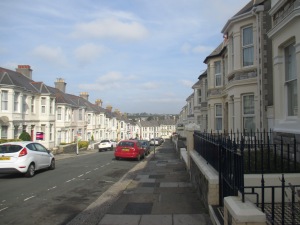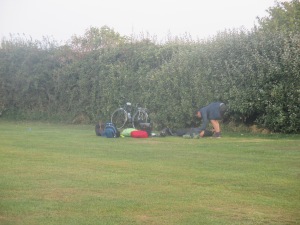‘The world’s changing.’ – Colin, Christow.
I’ve stayed the night in Plymouth, with Imke, Andrew and their three teenage children. Their large family home is cluttered with the treasures of lives well-lived. Down at the breakfast table, I drink coffee slowly and talk with Andrew, a farm manager back in Cornwall.
He sees himself as one of the last of this dying way of life, and is pessimistic about the future. ‘Young people now, they don’t want to work hard’. Would more and better-paid apprenticeships make a difference? ‘No, no’ he chuckles, heavily. ‘People just don’t want to do hard work.’ As a child, there would be long days at school, and then ‘we used to go into the fields in the evenings, and the weekends, picking spuds’. He looks back on these scenes with disappointed nostalgia, like the veteran of a narrowly-defeated platoon. Like many experienced farmers, he describes his work not in terms of animals but of food, working with ‘beef, some corn, some lamb’. Despite his experience, he owns no farm himself, but manages one for a retired couple who have bought some land as a ‘hobby’. By contrast, he describes the farming culture he grew up in as ‘a way of life’, as others do.
This culture has been a blessing and a curse on farmers. Unable to take up any other employment, they’ve been ground down into accepting decreasing pay for their produce. The public have (mostly) wrongly associated them with CJD disease, bloodsports, GM foods and the needless slaughter of badgers, when instead responsibility lies with conflicting government directives or the toffs who own much of the countryside. Meat and veg have become unsavoury. Apples and potatoes must now conform to an ad-agency’s glossy image of roundness or greenness, or supermarkets will not sell them, claiming we will not buy them. The general public has become ignorant of its own food production. Fruit must be chopped into ‘five a day’ salad bags; meat must be de-boned, skinned and bread-crumbed. A niche has opened up among the urban middle classes for organic and ethically-nourished foods. Unaware of the necessary intensity of food production to feed a massive human population cheaply, the criminal antics of massive agricultural companies have been conflated with the everyday practices of farmers. Ask for immediate word associations with ‘farmer’ among your average town-dweller, and the results will not be positive.






Continue reading →



























































